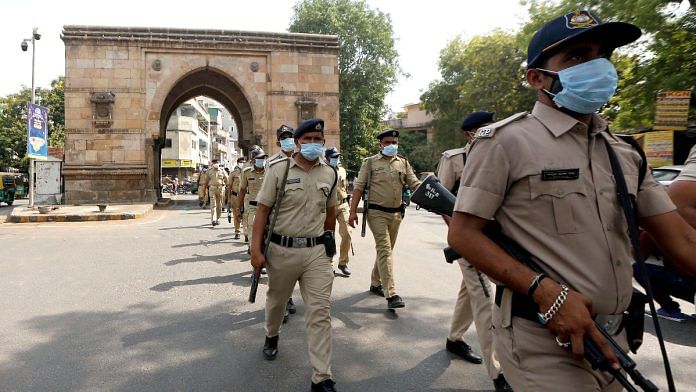New Delhi: The Ministry of Home Affairs is set to notify the date on which the three new criminal laws will kick in, and will announce it before 26 January, ThePrint has learnt.
The Bharatiya Nyaya (Second) Sanhita, 2023, the Bharatiya Sakshya (Second), 2023, and the Bharatiya Nagarik Suraksha (Second) Sanhita, 2023, seek to replace the colonial-era Indian Penal Code (IPC), Indian Evidence Act and Code of Criminal Procedure (CrPC), respectively.
They were cleared by Parliament and President Droupadi Murmu last month.
According to government sources, the laws will be implemented in the next 9-12 months. The sources said a special task force has been formed under the Bureau of Police Research & Development (BPR&D) to ensure that all key officials are “trained”, and the transition is “smooth”.
There will be three modules of training, an official said, adding that 3,000 officers from different fields will be appointed to train police officers and lawyers as part of a “training-of-trainers (TOT) programme.
“Each district will have five such trainers. This will ensure that there is no confusion,” the official added. “We expect this training to cover 90 percent of the people who are to be trained in the next one year.”
The officer said the new criminal code books have been printed and are now available at bookstores.
The new laws seek to bring several changes in the criminal justice system, including revisions in the punishment for certain crimes, as well as the definitions.
The officer quoted above said care has been taken to avoid confusion regarding sections whose numbers have been changed. The older section number, he added, is mentioned in a bracket alongside the new one in the fresh texts.
“For instance, the section for murder, which was 302 IPC, will now be 101 under the new law. But 302 will be mentioned in a bracket alongside 101 in the new crime manual,” the officer said.
The BPR&D’s Bhopal-based Central Academy for Police Training (CAPT) has been tasked with training the judiciary in the new law.
A trial run for the implementation of the new laws has already begun in Ahmedabad, the officer said.
Also Read: New criminal law bill broadens definition of terrorism, now includes ‘threat to economic security’
Forensics-driven investigations
Among other things, the new laws seek to provide a push for forensics-driven investigations. As many as 900 Forensic Science Laboratory vans will thus be rolled out in 885 police districts over the next six months.
Work has already been completed in 75 police districts, the officer added.
Under the new CrPC, or the Bharatiya Nagarik Suraksha (Second) Sanhita, 2023, a forensic examination will be mandatory in cases with offences that are punishable with imprisonment of seven years or more. It’s also mandatory under the law to film the process.
“On receipt of every information relating to the commission of an offence, which is made punishable for seven years or more, the officer in charge of a police station shall cause the forensics expert to visit the crimes scene to collect evidence in the offence and also cause videography of the process on a mobile phone or any other electronic device,” the Act says.
In case where a forensics facility is not available, the state government shall notify the utilisation of another facility in any other state, it says.
“This means that the use of forensics in the investigation has been made mandatory for all states and Union territories,” the officer said. “This is being done to ensure an increased rate of conviction. The necessary infrastructure for this will be ready soon.”
As the changes are applied, there are plans to develop Chandigarh as a “model city”, where all online modules like the ICJS (Inter-operable Criminal Justice System) — an initiative of the Supreme Court e-committee to enable seamless data transfer between different pillars of the criminal justice system — will be implemented.
“This model state will be then emulated by all the states,” the officer said.
(Edited by Sunanda Ranjan)
Also Read: Home ministry sought views on Bharatiya Nyaya Sanhita bill but two states stayed mum



